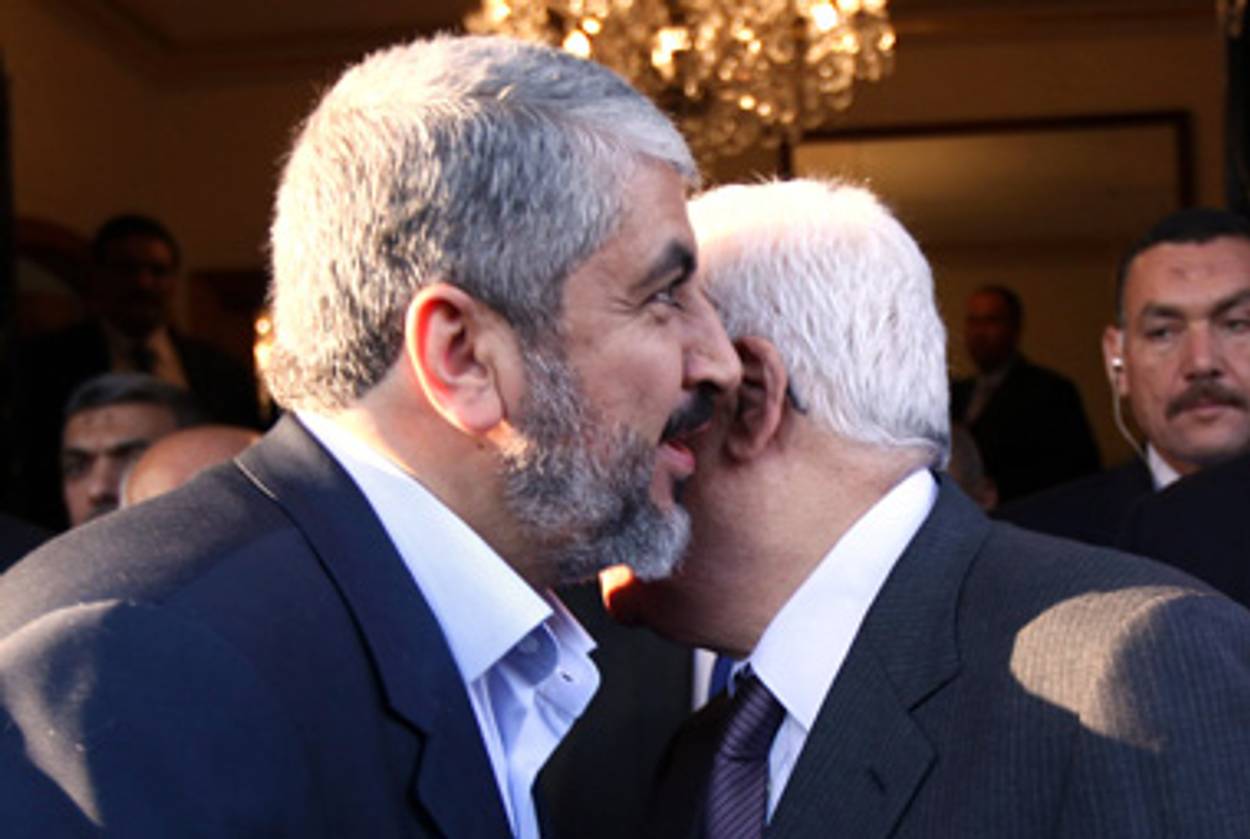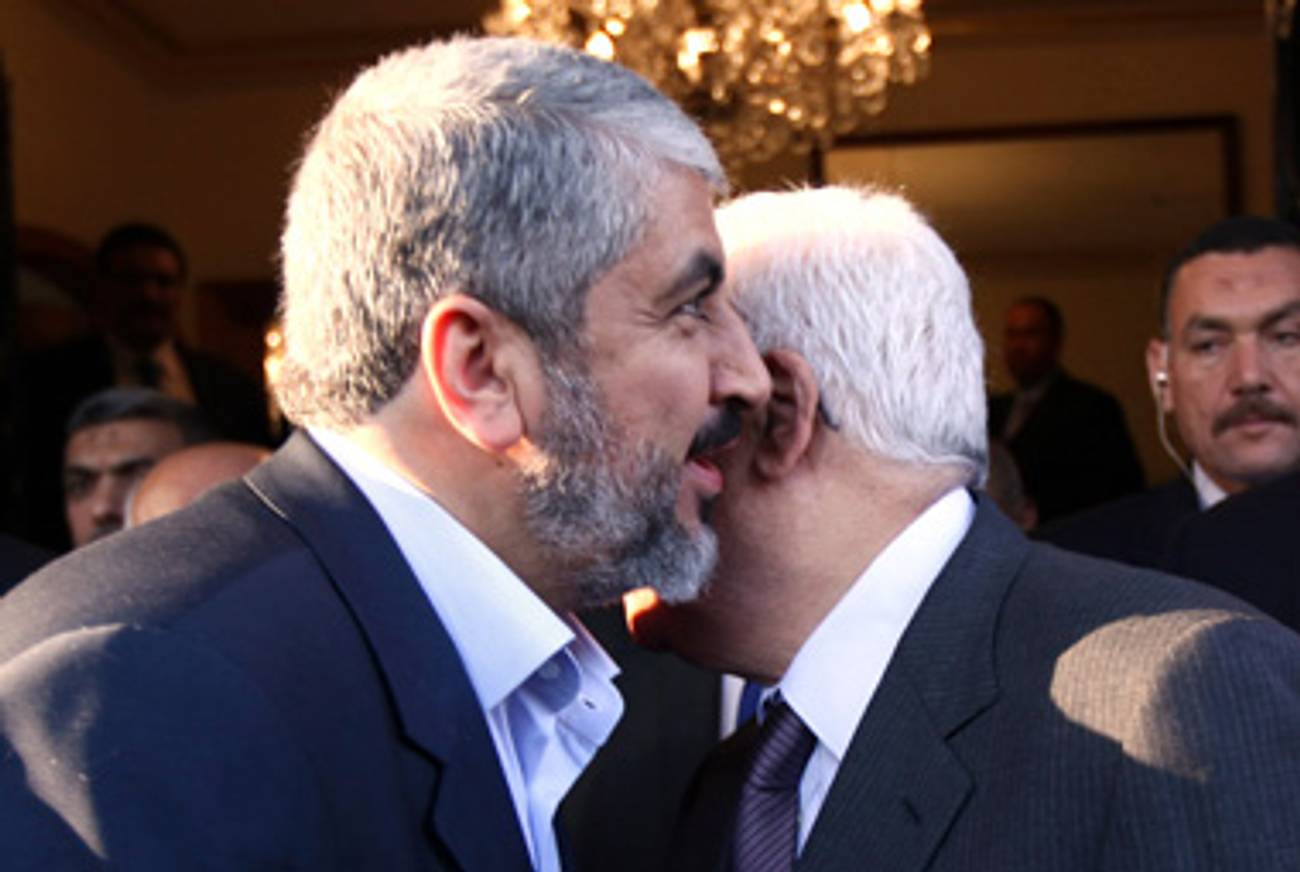Will Turkey Broker Palestinian Reconciliation?
Why Ankara might be the next stop for Abbas and Meshal




Is Hamas going legit? Reconciliation—the creation of a unity government consisting of Hamas and the Palestinian Authority, which was already tried and failed once this year—would require Hamas to convincingly renounce violence and, probably, the elimination of the Jewish state as its mission. (This is part of why people are dubious that reconciliation will ever happen.) Over the weekend, President Abbas reported that Hamas leader Khaled Meshal told him he would agree to renounce violence and to pursue a Palestinian state along the 1967 lines, and Hamas apparently confirmed a change in tack, telling the Guardian, “Violence is no longer the primary option but if Israel pushes us, we reserve the right to defend ourselves with force.” Of course, the paper notes that last week Meshal told cheering Gazans, “The resistance and the armed struggle are the way and the strategic choice for liberating Palestinian land from the (Jordan) river to the (Mediterranean) sea,” which is an uncannily succinct disproof of reform with the credibility of being spoken to his constituents. And meanwhile, this morning Fatah kicked several smaller groups who oppose its more diplomatic approach out of the reconciliation talks. This blog’s policy remains to advise you not to believe reconciliation has occurred until at least six months after you’ve been told it has.
Abbas and Meshal will meet next week to further hash out details—most germane are the holding of joint parliamentary and then presidential elections—and, as they have throughout this iteration of reconciliation and as they did earlier this year when they actually struck a deal, the meeting will be in Cairo, which post-Mubarak is newly hospitable to Hamas and generally to bolstering the Palestinian cause. However, I can’t help but wonder if the most logical meeting-place isn’t Cairo but … Ankara?
Hamas Prime Minsiter Ismail Haniyeh may soon visit Turkey as well as Qatar (to which Hamas, which is based in Damascus, is thought to be considering a move) and several other Arab states, which would be unprecedented. Somebody noted that on Twitter, Turkey’s ministry of foreign affairs referred to “Mahmoud Abbas, President of State of Palestine,” who was on a “working visit” to Turkey yesterday. “State,” eh? And what was he “working” on?
Isn’t this a move that makes sense for all sides? Erdogan’s Turkey continues to bolster its status as the prime regional power broker and stick its finger in Israel’s eye. Hamas and the P.A., together, receive the imprimatur not—or not only—of the shaky Cairo regime, with its divide between popularly elected Islamists and ruling military holdouts, but of an actually robust and actually Muslim democracy, which is also a major U.S. ally. Hamas uses the association as credibility with the European Union and others that it has indeed moderated; the P.A. is shielded from Washington’s wrath by Turkey’s friendship with Washington. How is this not the logical next step?
‘Meshal Agreed to Non-Violence, Pre-’67 Borders’ [JPost]
Hamas Moves Away from Violence in Deal With Palestinian Authority [Guardian]
Palestinian Parties Walk Out of Unity Talks in Cairo [JPost]
Marc Tracy is a staff writer at The New Republic, and was previously a staff writer at Tablet. He tweets @marcatracy.